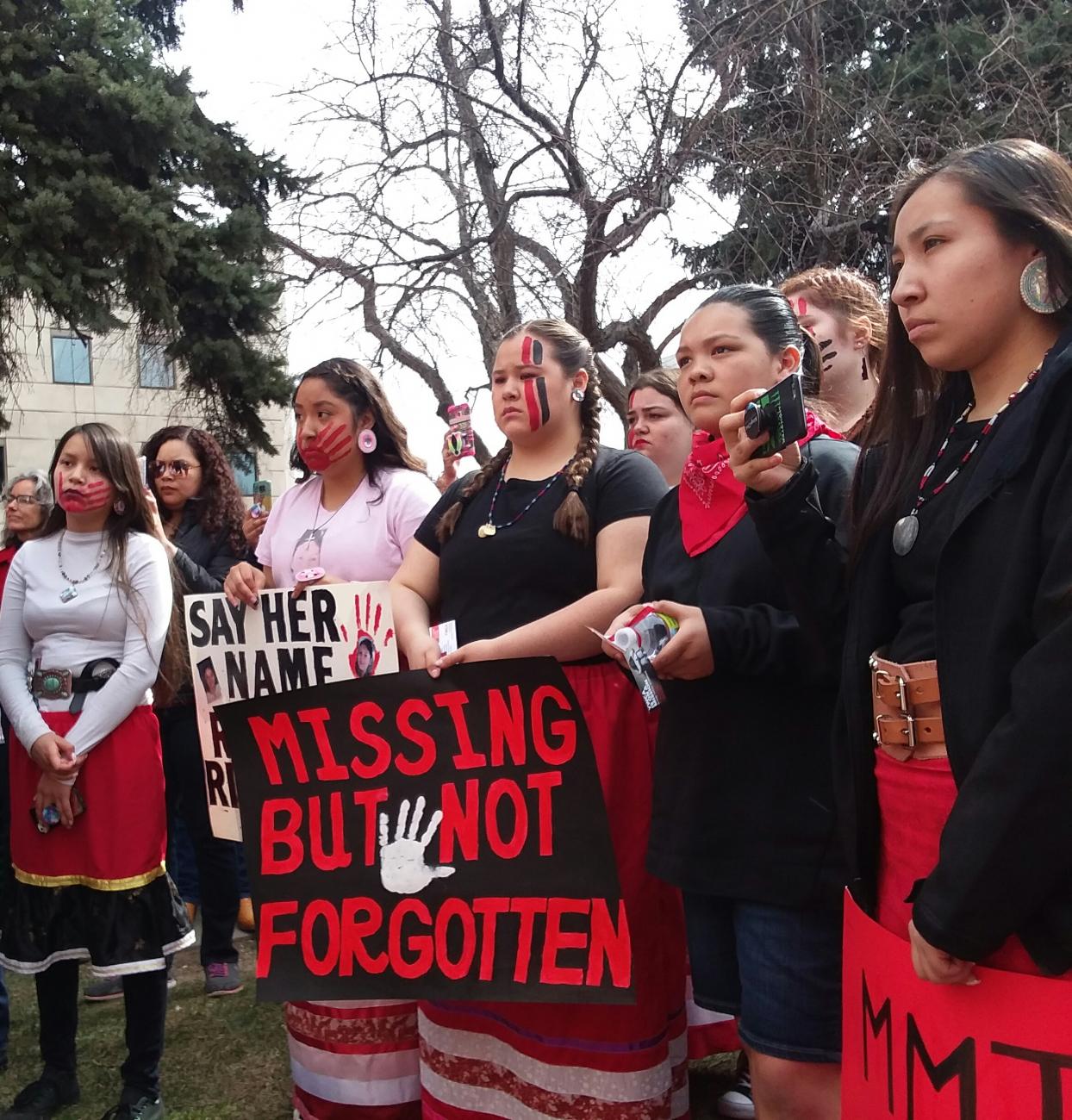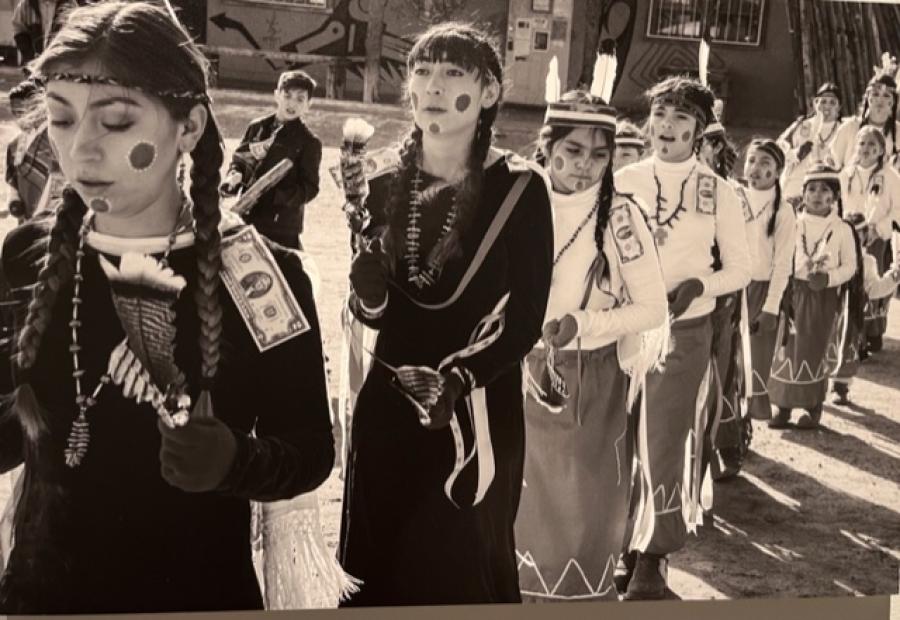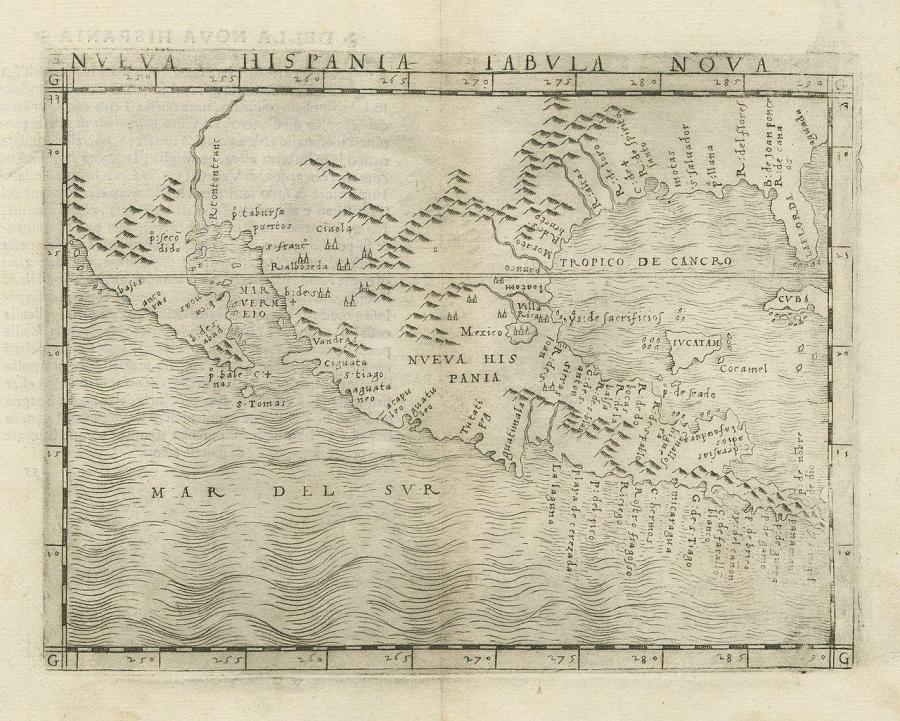
By International Indian Treaty Council
On April 2nd, 2019, the United Nations (UN) Committee on Civil and Political Rights (CCPR) presented a list of questions to the United States of America (US) about its implementation of the International Covenant on Civil and Political Rights (ICCPR). The CCPR is the UN Treaty monitoring body that reviews compliance with the Covenant by the States which have ratified it, including the United States, based on their submission of periodic reports every 4-6 years. For its upcoming country review, the US is being asked to respond to specific questions presented by the CCPR in advance addressing a range of issues and rights addressed by the Covenant. The US now has one year to submit a report that includes responses to these questions.
In preparation for this UN human rights review of the US, the International Indian Treaty Council (IITC) organized a coordinated submission with issues and questions from Indigenous Peoples to the CCPR on January 19, 2019. The Sicangu (Rosebud) Treaty Council, Venetie Tribal Government (Arctic Village and Venetie, Alaska), Chickaloon Native Village (Alaska), Shishmaref Native Village (Alaska), Nation of Hawai‘i, Association on American Indian Affairs, United Confederation of Taino People, Lakota Law Project, Indigenous World Association, Laguna-Acoma Coalition for a Safe Environment, Sixth World Solutions, Huy (Indigenous Prisoners’ Rights Advocacy), the University of Arizona Indigenous Peoples Law and Policy Program, the National Indian Child Welfare Association and the Indigenous Rights Center (Albuquerque, New Mexico) were co-submitters. The National Congress of America Indians, Native American Rights Fund, National Native American Boarding School Healing Coalition, and the Navajo Nation Human Rights Commission also contributed to the submission.
The Indigenous Peoples’ coordinated submission addressed a wide range of critical issues impacting the rights of Indigenous Peoples and Tribal Nations whose traditional homelands are within what is commonly considered to be the political boundaries of the US. The submission addressed US failures to implement and uphold Treaty rights, decolonization processes, Free Prior and Informed Consent regarding development, environmental protection, equality in criminal justice, voting rights and political participation, cultural rights and sacred areas, protection for civilians from unjustified force by law enforcement, and subsistence rights. It presented questions about missing and murdered Indigenous women, high rates of gender-based violence and trafficking, lack of accountability for inter-generational impacts of US boarding schools and continued disproportionate levels of removal of Indigenous children from their families and communities.
The final list of questions presented by the CCPR to the United States contains a specific paragraph regarding the rights of Indigenous Peoples, and also includes a number of concerns submitted by Indigenous Peoples, such as voting rights, political participation, criminal justice inequalities and clean water, in the general list of questions. IITC’s Executive Director Andrea Carmen, Yaqui Nation, noted with appreciation that in its list of questions addressing the Rights of Indigenous Peoples, the CCPR expanded the questions in its 2014 US review beyond the issues of freedom of religion and protection of sacred areas to also include questions about redress for past resource appropriations. She observed that “the CCPR calls on the US to explain the steps it is taking to protect Indigenous Peoples’ traditional ways of life as well as their sacred areas. This can be interpreted very broadly to include cultural practices, languages, access to lands and resources, subsistence practices as well as the exercise of political sovereignty, among others.” Andrea expressed IITC’s disappointment that once again the CCPR did not specifically address issues raised in the Indigenous submission addressing ICCPR Article 1 which affirms the rights of all Peoples to Self-Determination and Means of Subsistence. However, she observed that “some of the questions submitted under the Article 1 rights by Indigenous co-submitters can be addressed under the questions on redress, traditional ways of life and political participation”.
Frank Ettawageshik, former Chairman of the Little Traverse Bay Bands of Odawa Indians and current Executive Director of United Tribes of Michigan, contributed to the submission, addressing the impacts of gas pipelines on subsistence rights in his region. He commented on the contributions that participation in this and other international processes can make in upholding the rights of Indigenous Peoples at home, stating: “The ICCPR process provides an international venue to shed light on the struggle to hold the US and other States accountable to implement the UN Declaration on the Rights of Indigenous Peoples and other international agreements. During the upcoming review of the United States, we believe that seeing how the US answers the recently released compilation of questions will assist Indigenous Peoples in our efforts. Specifically, we will look for the US responses to questions regarding the protection of traditional ways of life and sacred areas, and the protection and safety of Indigenous women”.
Laguna Pueblo attorney June Lorenzo, representing the Laguna-Acoma Coalition for a Safe Environment (LACSE) developed the section of the submission addressing continued threats to Indigenous Peoples’ sacred areas. She commented on the CCPR’s renewed call on the US to protect sacred areas and to report on US implementation of the previous recommendations it made to the US in 2012 in this regard: “The CCPR has once again reminded the US that its obligations under the Covenant include incorporating it into domestic law at all levels. Indigenous Peoples must engage with all levels of government to protect sacred areas, so this is critical. The question of redress is key to the realization of human rights in the USA, especially using the standards contained in the UN Declaration on the Rights of Indigenous Peoples. Indigenous peoples have been seeking redress on the ground in cases such as the San Francisco Peaks, Mt. Taylor, the Grand Canyon, Chaco Canyon and other sacred places for years. This issue of vital importance addresses the fundamental rights protected and affirmed by Article 27 of the ICCPR. The US, as a State Party to the Covenant, is legally bound to uphold these rights”.
The Nation of Hawai’i contributed to the Indigenous Peoples’ submission requesting that the CCPR ask the US to explain what they are doing to support the reconciliation process mandated in U.S. Public Law 103-150, the Hawai’ian Apology Resolution adopted by the US Congress in 1993 as a result of the US overthrow of the Hawai’ian Nation’s sovereign government in 1883 in violation of their Treaty of Peace and Friendship. “The Committee did not ask the US to respond directly about the situation of Hawai’i, as we had recommended,” commented Pu’uhonua “Bumpy” Kanahele, Nation of Hawai’i Head of State. However, the Nation of Hawai’i is encouraged by the Committee’s request that the US provide information on the extent to and manner in which the Covenant has been incorporated into domestic law at the local, state and federal level, and that the US clarify its current legal position on the scope of applicability of the Covenant with respect to individuals under its jurisdiction but outside its territory. The Committee also asked the US to address what it is doing to provide redress to Indigenous Peoples impacted by development, to protect our traditional ways of life, and to consult with us to obtain our Free Prior and Informed Consent. These questions are applicable to Hawai’i and to other Indigenous Peoples impacted by US colonization and Treaty violations. They also provide an opportunity for the US to consider practical solutions”.
###
For more information about this process and the next steps contact Andrea Carmen, IITC’s Executive Director at andrea@treatycouncil.org or via phone: + (520) 273-6003 (cell), +(520) 833-9797.
Photo:Young Native America women demand justice for Missing and Murdered Indigenous Women at a March on April 5th, 2019, in Billings Montana. This one of the issues highlighted by the UN Committee on Civil and Political Rights in its questions to the United States. Photo credit: Adrian Jawort



